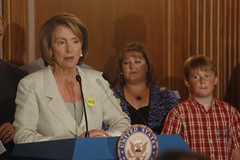Proof that Government Regulation is needed to make Corpration’s products safe for consumers?
Question by I VOTE: Proof that Government Regulation is needed to make Corpration’s products safe for consumers?
The cars roll endlessly off the local assembly lines of the industry’s biggest automakers, more than 10,000 a day, into the eager hands of Brazil’s new middle class. The shiny new Fords, Fiats, and Chevrolets tell the tale of an economy in full bloom that now boasts the fourth largest auto market in the world.
What happens once those vehicles hit the streets, however, is shaping up as a national tragedy, experts say, with thousands of Brazilians dying every year in auto accidents that in many cases shouldn’t have proven fatal.
The culprits are the cars themselves, produced with weaker welds, scant safety features and inferior materials compared to similar models manufactured for U.S. and European consumers, say experts and engineers inside the industry.
Brazilian death rate from passenger car accidents that is nearly four times that of the United States.
The country’s few safety activists perceive a deadly double standard, with automakers earning more money from selling cars that offer drivers fewer safeguards.
“The manufacturers do this because the cars are a little cheaper to make and the demands of the Brazilian consumers are less; their knowledge of safety issues is lower than in Europe or the U.S.”
Manufacturers earn a 10 percent profit on Brazilian-made cars, compared with 3 percent in the U.S. and a global average of 5 percent, according to IHS Automotive, an industry consulting firm.
Only next year will laws require frontal air bags and anti-lock braking systems on all cars, safety features that have been standard in industrial countries for years.
An engineer for a major U.S. automaker, speaking only on condition of anonymity for fear of losing his job, said he has watched for years as his company failed to implement more advanced safety features in Brazil, simply because the law did not require them.
“”The automakers are pleased to make more profitable cars for countries where the demands, whatever they may be, are less rigorous,” he said. “It happens everywhere — India, China and Russia, for example.”
The dangers come down to basics, engineers said: the lack of body reinforcements, lower-quality steel in car bodies, weaker or fewer weld spots to hold the vehicles together and car platforms designed decades before modern safety advances.
Over the years Ward said he has watched the same battles play out over auto safety — the only thing that changes is the location.
“The sad thing is, this has been the experience in the 1960s in the U.S., in the 1990s in Europe and now in Latin America,” Ward said. “The industry does the least it can get away with until they’re forced to do something different. It’s maddening.”
http://autos.yahoo.com/news/ap-impact-cars-made-brazil-191853931.html
Why don’t Corporations voluntary make cars that are more safer evev after there is demand for it???
Best answer:
Answer by Progress
If there were no regulations forbidding toxic dumping, the Koch Brothers and most other polluters would be having a field day. Say goodbye to your ground water.
Even WITH REGULATIONS, companies like BP had over 500 safety violations. Then they killed a dozen men and ruined an ecosystem.
We need rules. Plain and simple. Without them, the greedy, and the criminal, will take advantage of good people every time.
Bush deregulated Wall STreet – which led to the Great Recession in 2008.
Give your answer to this question below!


